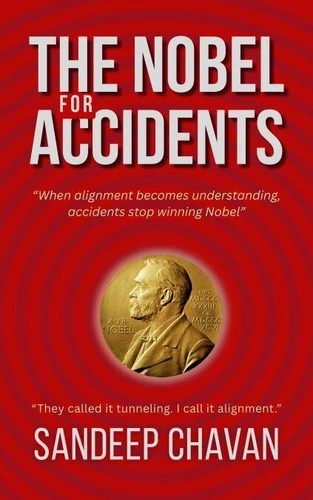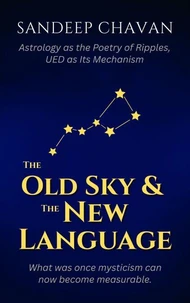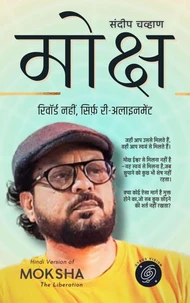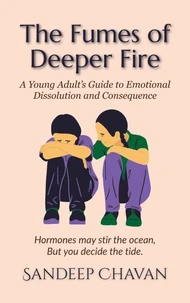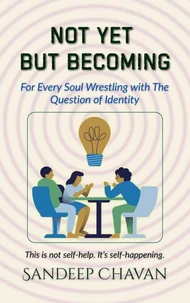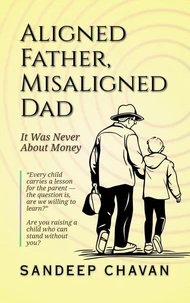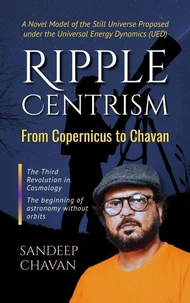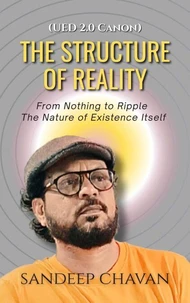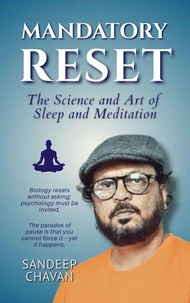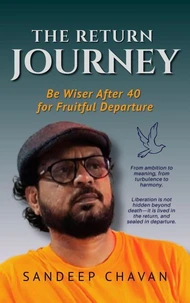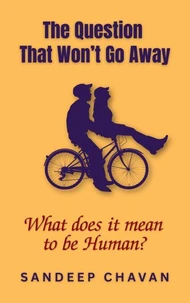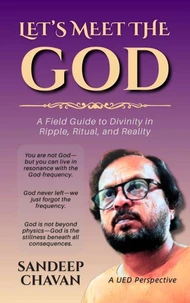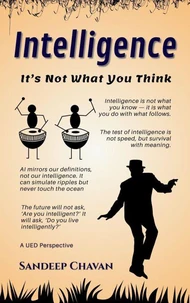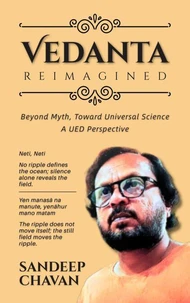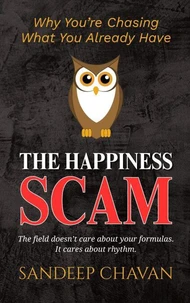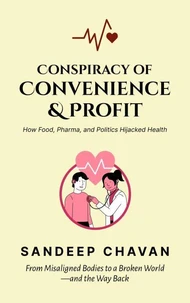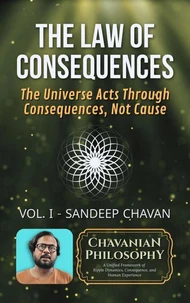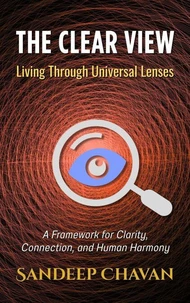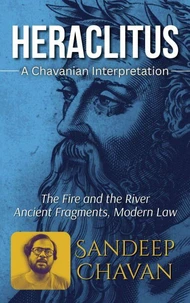Nouveauté
The Nobel for Accidents
Par :Formats :
Disponible dans votre compte client Decitre ou Furet du Nord dès validation de votre commande. Le format ePub protégé est :
- Compatible avec une lecture sur My Vivlio (smartphone, tablette, ordinateur)
- Compatible avec une lecture sur liseuses Vivlio
- Pour les liseuses autres que Vivlio, vous devez utiliser le logiciel Adobe Digital Edition. Non compatible avec la lecture sur les liseuses Kindle, Remarkable et Sony
- Non compatible avec un achat hors France métropolitaine
 , qui est-ce ?
, qui est-ce ?Notre partenaire de plateforme de lecture numérique où vous retrouverez l'ensemble de vos ebooks gratuitement
Pour en savoir plus sur nos ebooks, consultez notre aide en ligne ici
- FormatePub
- ISBN8232726843
- EAN9798232726843
- Date de parution10/10/2025
- Protection num.Adobe DRM
- Infos supplémentairesepub
- ÉditeurHamza elmir
Résumé
The Nobel for Accidents: How Nature Keeps Rewarding Human Misunderstanding - and Calling It DiscoveryWhat if humanity's greatest scientific triumphs were never achievements of genius, but moments of accidental alignment? What if the Nobel Prizes we celebrate as proof of brilliance are, in truth, medals for misunderstanding - rewards for stumbling into coherence by mistake?In The Nobel for Accidents, independent researcher Sandeep Chavan dismantles a century of "quantum miracles" with wit, clarity, and fearless logic.
Through the revolutionary framework of Universal Energy Dynamics (UED), he reinterprets the history of modern physics - from Planck's desperate constant to the 2025 Nobel in superconducting circuits - as a story not of invention, but of rediscovery. This is not a rebellion against science; it is science remembering itself. Chavan shows how every so-called paradox - quantum tunneling, uncertainty, wavefunction collapse - dissolves when we see energy as a continuous, coherent ripple field rather than fragmented particles and probabilities.
What physicists call weirdness, UED calls misalignment. What they celebrate as randomness, nature calls relaxation. Blending philosophy, humor, and hard science, this book exposes the deeper rhythm hidden beneath a century of confusion. It argues that discovery happens not through struggle, but through stillness - when noise stops, coherence reveals itself. From "The Quantum Confession" to "The Tunnel That Wasn't There" and "The Cold Truth, " each chapter rewrites the story of modern science as an unfolding of awareness rather than accidents.
The Nobel for Accidents is both satire and revelation - a call for humility in the age of arrogance, and a reminder that the universe doesn't play dice; we do. Chavan's bold reimagining of physics, from Structured Vacuum Energy (SVE) to the Law of Consequence (LOC), is poised to challenge everything we think we know about energy, matter, and intelligence itself. If Richard Feynman made physics sound poetic, and Einstein made it profound, Sandeep Chavan makes it personal - showing that the true frontier of science is not the atom or the galaxy, but the mind learning to see coherence in its own reflection.
Provocative. Fearless. Uncompromising. For readers of scientific philosophy, quantum paradox, and cosmic humor - this is not a book about accidents. It's about what happens when we finally stop calling them that.
Through the revolutionary framework of Universal Energy Dynamics (UED), he reinterprets the history of modern physics - from Planck's desperate constant to the 2025 Nobel in superconducting circuits - as a story not of invention, but of rediscovery. This is not a rebellion against science; it is science remembering itself. Chavan shows how every so-called paradox - quantum tunneling, uncertainty, wavefunction collapse - dissolves when we see energy as a continuous, coherent ripple field rather than fragmented particles and probabilities.
What physicists call weirdness, UED calls misalignment. What they celebrate as randomness, nature calls relaxation. Blending philosophy, humor, and hard science, this book exposes the deeper rhythm hidden beneath a century of confusion. It argues that discovery happens not through struggle, but through stillness - when noise stops, coherence reveals itself. From "The Quantum Confession" to "The Tunnel That Wasn't There" and "The Cold Truth, " each chapter rewrites the story of modern science as an unfolding of awareness rather than accidents.
The Nobel for Accidents is both satire and revelation - a call for humility in the age of arrogance, and a reminder that the universe doesn't play dice; we do. Chavan's bold reimagining of physics, from Structured Vacuum Energy (SVE) to the Law of Consequence (LOC), is poised to challenge everything we think we know about energy, matter, and intelligence itself. If Richard Feynman made physics sound poetic, and Einstein made it profound, Sandeep Chavan makes it personal - showing that the true frontier of science is not the atom or the galaxy, but the mind learning to see coherence in its own reflection.
Provocative. Fearless. Uncompromising. For readers of scientific philosophy, quantum paradox, and cosmic humor - this is not a book about accidents. It's about what happens when we finally stop calling them that.
The Nobel for Accidents: How Nature Keeps Rewarding Human Misunderstanding - and Calling It DiscoveryWhat if humanity's greatest scientific triumphs were never achievements of genius, but moments of accidental alignment? What if the Nobel Prizes we celebrate as proof of brilliance are, in truth, medals for misunderstanding - rewards for stumbling into coherence by mistake?In The Nobel for Accidents, independent researcher Sandeep Chavan dismantles a century of "quantum miracles" with wit, clarity, and fearless logic.
Through the revolutionary framework of Universal Energy Dynamics (UED), he reinterprets the history of modern physics - from Planck's desperate constant to the 2025 Nobel in superconducting circuits - as a story not of invention, but of rediscovery. This is not a rebellion against science; it is science remembering itself. Chavan shows how every so-called paradox - quantum tunneling, uncertainty, wavefunction collapse - dissolves when we see energy as a continuous, coherent ripple field rather than fragmented particles and probabilities.
What physicists call weirdness, UED calls misalignment. What they celebrate as randomness, nature calls relaxation. Blending philosophy, humor, and hard science, this book exposes the deeper rhythm hidden beneath a century of confusion. It argues that discovery happens not through struggle, but through stillness - when noise stops, coherence reveals itself. From "The Quantum Confession" to "The Tunnel That Wasn't There" and "The Cold Truth, " each chapter rewrites the story of modern science as an unfolding of awareness rather than accidents.
The Nobel for Accidents is both satire and revelation - a call for humility in the age of arrogance, and a reminder that the universe doesn't play dice; we do. Chavan's bold reimagining of physics, from Structured Vacuum Energy (SVE) to the Law of Consequence (LOC), is poised to challenge everything we think we know about energy, matter, and intelligence itself. If Richard Feynman made physics sound poetic, and Einstein made it profound, Sandeep Chavan makes it personal - showing that the true frontier of science is not the atom or the galaxy, but the mind learning to see coherence in its own reflection.
Provocative. Fearless. Uncompromising. For readers of scientific philosophy, quantum paradox, and cosmic humor - this is not a book about accidents. It's about what happens when we finally stop calling them that.
Through the revolutionary framework of Universal Energy Dynamics (UED), he reinterprets the history of modern physics - from Planck's desperate constant to the 2025 Nobel in superconducting circuits - as a story not of invention, but of rediscovery. This is not a rebellion against science; it is science remembering itself. Chavan shows how every so-called paradox - quantum tunneling, uncertainty, wavefunction collapse - dissolves when we see energy as a continuous, coherent ripple field rather than fragmented particles and probabilities.
What physicists call weirdness, UED calls misalignment. What they celebrate as randomness, nature calls relaxation. Blending philosophy, humor, and hard science, this book exposes the deeper rhythm hidden beneath a century of confusion. It argues that discovery happens not through struggle, but through stillness - when noise stops, coherence reveals itself. From "The Quantum Confession" to "The Tunnel That Wasn't There" and "The Cold Truth, " each chapter rewrites the story of modern science as an unfolding of awareness rather than accidents.
The Nobel for Accidents is both satire and revelation - a call for humility in the age of arrogance, and a reminder that the universe doesn't play dice; we do. Chavan's bold reimagining of physics, from Structured Vacuum Energy (SVE) to the Law of Consequence (LOC), is poised to challenge everything we think we know about energy, matter, and intelligence itself. If Richard Feynman made physics sound poetic, and Einstein made it profound, Sandeep Chavan makes it personal - showing that the true frontier of science is not the atom or the galaxy, but the mind learning to see coherence in its own reflection.
Provocative. Fearless. Uncompromising. For readers of scientific philosophy, quantum paradox, and cosmic humor - this is not a book about accidents. It's about what happens when we finally stop calling them that.

